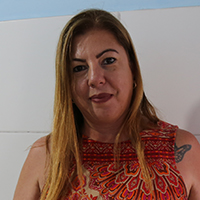A visit to the Iacy Vaz Fagundes school, tucked away on a side street in the Federação neighborhood of Salvador, Brazil, quickly reveals the challenges faced by vulnerable students. In one of the classrooms, a learner from the City Council's Learning Support Program (PAAP) was working with two girls aged 9 and 10. Despite being old enough to read and understand simple texts, they couldn't even associate the sound of the vowel "A" with words like "amor" (love), "abacaxi" (pineapple), and "açúcar" (sugar). Witnessing this, one can't help but wonder about the future jobs and lives these girls will have if they continue to struggle with basic reading skills, which are essential for learning a wide range of subjects.
In another room, with desks arranged in a circle, four boys around 17 years old were discussing artificial intelligence and human rights with their teacher after watching educational programs on television. They were then asked to answer some questions in writing on the board. It was striking to see their effort to provide the best possible answers, even if they were written in lowercase letters (out of fear or embarrassment of making mistakes) or with spelling errors.
These students are part of the "Chegando Junto" program, which groups students who are at least two years behind the grade level appropriate for their age. The goal is to create a class with a more similar profile, allowing the teacher to focus more on the students' difficulties. Students who complete the program receive a certificate of completion for primary school, which opens the doors to secondary school. This initiative aims to reduce the age-grade distortion in the public school system and rekindle young people's love for learning, encouraging them to continue their education.
In 2019, four out of ten students from sixth to ninth grade were at least two years behind their appropriate grade level. The results of "Chegando Junto" are still pending, but it is expected to reduce the age-grade distortion by nearly half, from 42% in 2019 to 23% in 2024.



